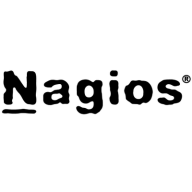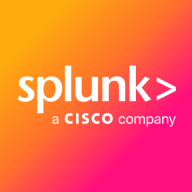

Splunk Enterprise Security and Nagios Log Server are competing solutions in the log management and security information domains. Splunk Enterprise Security seems to have an advantage in feature set and integration capabilities.
Features: Splunk Enterprise Security offers real-time data insights, threat detection, and fast search capabilities. It excels in third-party integrations and is strong in data analytics and visualization tools. Nagios Log Server is valued for its effective log monitoring and alerting capabilities, designed for ease of configuration and simplicity in use. It supports dashboards that are user-friendly and provides effective log query search features.
Room for Improvement: Splunk Enterprise Security could benefit from simplifying its setup and reducing complexity in its schema-on-read technology. Pricing models could be adjusted to accommodate budget constraints. It could also focus on enhancing user interface elements for improved engagement. Nagios Log Server may improve by enhancing its feature set to include more advanced analytics and integrating more data sources. It should also improve its scalability and explore better visualization options to compete more closely with advanced offerings.
Ease of Deployment and Customer Service: Splunk Enterprise Security requires significant setup time due to its extensive features, but it is supported by comprehensive customer service. Nagios Log Server is recognized for simple deployment and efficient customer service, allowing quicker access to essential functions.
Pricing and ROI: Splunk Enterprise Security is associated with higher setup costs and provides high ROI in complex setups due to detailed analytics. Nagios Log Server, being more cost-effective, offers a quicker return on investment for those prioritizing cost over advanced features, making it appealing to budget-conscious buyers.
| Product | Market Share (%) |
|---|---|
| Splunk Enterprise Security | 7.1% |
| Nagios Log Server | 0.8% |
| Other | 92.1% |

| Company Size | Count |
|---|---|
| Small Business | 109 |
| Midsize Enterprise | 50 |
| Large Enterprise | 264 |
Nagios Enterprises delivers official products, services, and solutions for and around Nagios – the industry standard in enterprise-grade IT infrastructure monitoring. With millions of users worldwide, Nagios is the undisputed champion in the IT monitoring space. Our team of dedicated professionals works to ensure total customer satisfaction with all the services we provide. Our extensive network of partners helps extend Nagios services and solutions to new organizations and markets worldwide to meet a variety of business needs. Nagios Enterprises was founded in 2007 by Ethan Galstad. Ethan created what would later become known as Nagios in 1999, and currently serves as the President of Nagios Enterprises.
Splunk Enterprise Security delivers powerful log management, rapid searches, and intuitive dashboards, enhancing real-time analytics and security measures. Its advanced machine learning and wide system compatibility streamline threat detection and incident response across diverse IT environments.
Splunk Enterprise Security stands out in security operations with robust features like comprehensive threat intelligence and seamless data integration. Its real-time analytics and customizable queries enable proactive threat analysis and efficient incident response. Integration with multiple third-party feeds allows detailed threat correlation and streamlined data visualization. Users find the intuitive UI and broad compatibility support efficient threat detection while reducing false positives. Despite its strengths, areas such as visualization capabilities and integration processes with cloud environments need enhancement. Users face a high learning curve, and improvements in automation, AI, documentation, and training are desired to maximize its potential.
What Are the Key Features of Splunk Enterprise Security?In specific industries like finance and healthcare, Splunk Enterprise Security is instrumental for log aggregation, SIEM functionalities, and compliance monitoring. Companies leverage its capabilities for proactive threat analysis and response, ensuring comprehensive security monitoring and integration with various tools for heightened operational intelligence.
We monitor all Log Management reviews to prevent fraudulent reviews and keep review quality high. We do not post reviews by company employees or direct competitors. We validate each review for authenticity via cross-reference with LinkedIn, and personal follow-up with the reviewer when necessary.